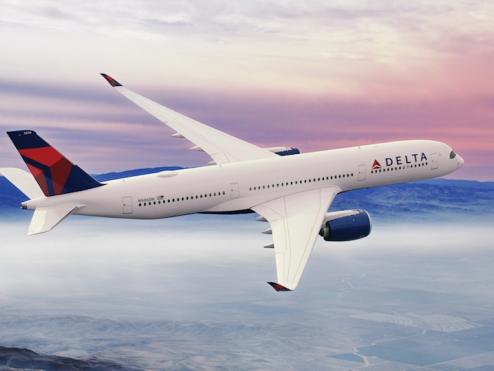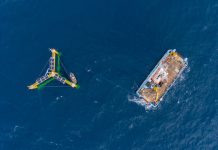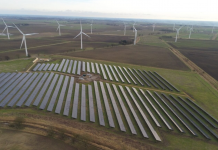The prospect of carbon-scrubbed or electrolysed hydrogen as a zero emissions aviation fuel has taken a big step forward, with Europe’s biggest plane maker signing a development deal with US major carrier Delta Air Lines.
Airbus last week attracted Delta as its first US partner into an understanding aimed at developing & operating clean power plants for the Toulouse-based maker’s aircraft, as well as associated production, sourcing and delivery of hydrogen at the world’s airports.
US engine builder GE is also collaborating with Airbus, under a recent three-way deal inked with French producer Safran Aircraft Engines to progress hydrogen as a propulsion source. Zero-emissions long haul travel by 2035 is the parties’ goal.
Delta’s and Airbus’ understanding will evaluate the economic and technical strengths of hydrogen-fueled planes, file a strategic flight plan to bring H2-powered planes into Delta’s operations, and identify practical challenges such as range limits, refueling logistics, and airport compatibility.
Assessing the infrastructure that would be needed to develop green hydrogen, bring it to scale, and implement at airports, are to scoped under the American-European deal.
“To decarbonise aviation, we need to develop the right technology and a dynamic hydrogen eco-system,” said Julie Kitcher, Airbus executive vice president for communications and corporate affairs.
“Through close collaboration with key partners such as Delta, we will integrate our customers’ expertise and specific needs to ensure our zero-emission aircraft will be a game-changer for sustainable aerospace.”
Eighteen months ago, Airbus launched its “ZeroE” programme, designed to develop hydrogen-powered aircraft for entry into service in the mid-2030s.
An A380 flying testbed equipped with liquid hydrogen tanks prepared at Airbus facilities in France and Germany will be the core of ZeroE. GE and Safran have formed a joint venture company, CFM, to progress necessary innovations.
The worldwide aviation industry has set up an Air Transport Action Group, mandated to to get the aviation industry to net-zero carbon emissions by 2050.
A decade ago, Delta became the first US airline to voluntarily cap emissions at 2012 levels. The initiative was criticised by environmental campaigners, since it was largely achieved y the airline’s purchase of carbon offsets.
“Hydrogen fuel is an exciting concept that has the potential to redefine the status quo. These tangible steps lay the groundwork for the next generation of aviation.”




